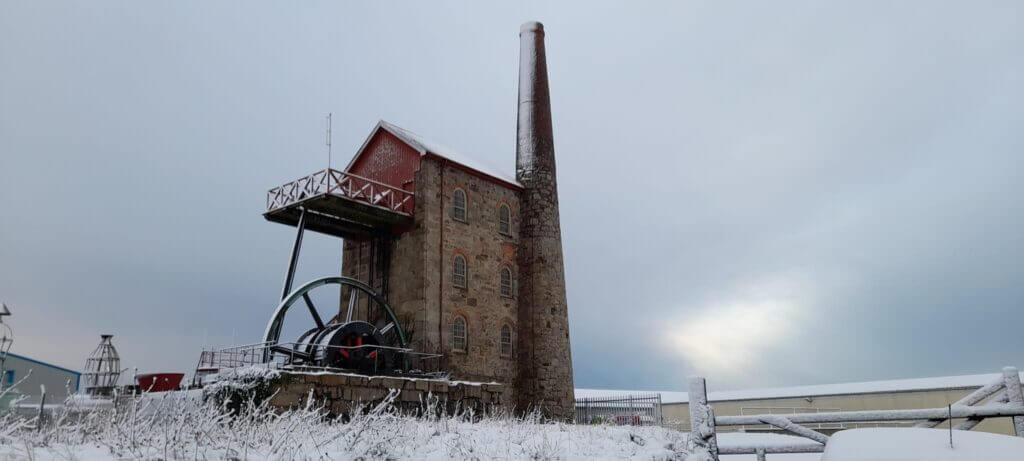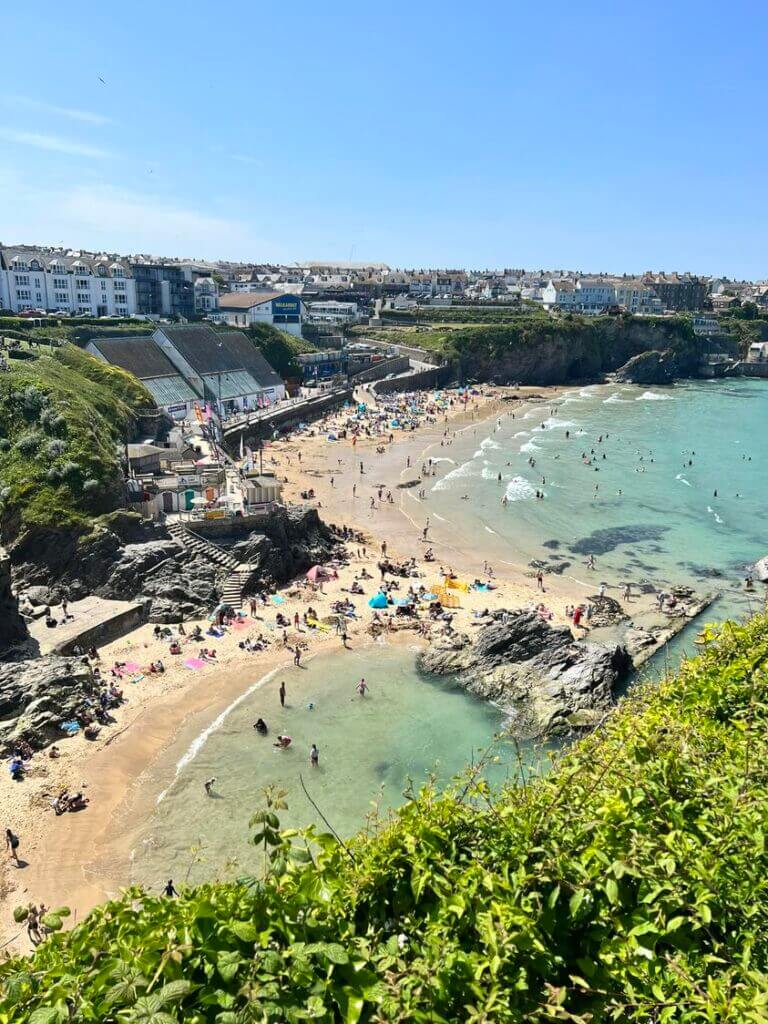With its stretches of golden sand, colourful fishing harbours and tranquil countryside, it’s no wonder the county of Cornwall has captured the imagination of so many looking to relocate. But before you pack your bags, it pays to carefully weigh up the pros and cons.
Will the reality of living in Cornwall full-time match your romantic notions? In this in-depth guide, we’ll analyse the key benefits and potential drawbacks to give you the full picture. From cost of living and job prospects to lifestyle perks and downsides, read on for an honest look at what life in Cornwall is really like.
The Main Pros of Living in Cornwall
Let’s start with the many positive factors that draw people to Cornwall and contribute to a high quality of life.
Lower Cost of Living
While not the cheapest place in the UK, the cost of living in Cornwall is generally lower than much of southern England. Housing is more affordable, especially compared to overheated markets around London. Food, utilities and council tax are also cheaper on average than the national norm.
Outstanding Natural Beauty

Cornwall is blessed with some of England’s most spectacular scenery. From plunging cliffs and golden sandy coves to moors and rivers, you’re never far from nature. The relatively unpolluted environment contributes to a superb quality of life.
Mild Climate
Warmed by the Gulf Stream, Cornwall enjoys among the mildest and sunniest weather in the UK. This gives it long seasons and allows exotic plants to thrive. Winters are moderately wet but rarely severe.
Slower Pace of Life
Beyond the tourist hotspots, Cornwall offers a chance to downshift to a more peaceful, relaxed way of life. The scattered villages and small communities foster a laidback atmosphere.
Strong Local Culture & Identity
Cornwall has its own distinct Celtic identity, from the Cornish language to lively festivals and customs. There is a sense of community spirit and pride.
Family-Friendly Lifestyle
The outdoor lifestyle, low crime rates, family-oriented communities and more make Cornwall an appealing place to raise kids. Easy access to beaches, rivers, and the countryside provides endless activities.
Opportunity for Outdoor Living
Outdoor recreation options are exceptional in Cornwall. From swimming and surfing to sailing, hiking, cycling and more – an active lifestyle is easily achievable.
Potential Downsides of Living in Cornwall
Of course, relocating to Cornwall isn’t all sunsets and scones. There are some potential disadvantages too:
Limited Job Options
Cornwall has fewer large employers than cities, and wages tend to be lower. Competition can be stiff for professional roles, and seasonal job insecurity is common. Commuting or remote work may be necessary.
Transport & Access Challenges
Public transport outside main towns is limited. Journeys take longer. Access to healthcare specialists can involve travel. High-speed broadband and mobile coverage is still patchy.
Housing Shortage
High demand from holiday home buyers limits available properties. Competition is fierce, so securing the home you want takes time. Rental homes are very scarce.
Weather Extremes

Summers are busy with tourists. In winter, many attractions and restaurants close. Fierce storms can cut off communities. It’s not always idyllic.
Limited Amenities
Beyond the main towns, shops, leisure facilities and entertainment options are sparse. Life revolves around outings to nature and visiting neighbouring villages.
Can Feel Remote or Isolated
In remote areas, a strong sense of isolation can develop, especially in winter with dark evenings and bad weather. A car is essential.
Expensive for Visitors
Travelling to see friends and family can get costly. Expect guests wanting to make the most of cheap holidays with you!
Cost of Living in Cornwall
Affordable living is part of Cornwall’s appeal, but costs vary across the county. Here’s a breakdown of typical expenses.
Housing Costs

The average Cornwall house price is around £254,000 – far below the £418,000 national average. However, this average masks hotspots. Expect much higher prices in areas like Padstow, Rock and St Ives. Rental demand exceeds supply, pushing up rents.
Food, Utilities & Council Tax
Weekly food shopping for a family of 4 costs around £60-£80. Gas and electricity bills are approximately £115 monthly. Cornwall Council tax is Band D £1,869 in 2022/23, compared to £2,069 average in England.
Communication Costs
The average broadband speed in Cornwall is 45.62Mbps, slightly below the UK’s 50.4Mbps. Packages start around £25 monthly. Mobile packages cost from £10 monthly upwards.
Petrol Costs
Driving is essential for most, and petrol is around 5% more expensive than nationally. The average price is currently around £1.62 per litre of unleaded. Diesel costs approximately £1.78.
Entertainment & Eating Out
A meal out for two in an average restaurant costs around £40-£50. Cinema tickets are £5-£10 cheaper than London. Less choice of nightlife, theatre and events.
Job Market and Opportunities in Cornwall
Securing stable employment is harder than in cities. But opportunities exist, especially in growing sectors.
Average Salary
The average full-time salary is £25,497 in Cornwall, compared to £31,285 nationally. However, lower costs offset this. Minimum wage and seasonal jobs dominate tourism/agriculture.
Key Industries
Top private sector employers are health, retail, tourism, construction, manufacturing and food/farming. Public sector jobs account for 30% of roles. Self-employment is high.
Major Employers
Some of the largest private employers include Princess Yachts, Pall Corporation, Dairy Crest, Agincare and St Austell Brewery. The NHS, Cornwall Council and education dominate public sector jobs.
Growth Sectors
Green energy, technology businesses, creative/digital, and healthcare are expanding job areas. New Spaceport plans promise more engineering roles. Permanent tourism jobs are increasing.
Job Hunting Tips
- Target growth sectors like tech
- Consider self-employment/start-up options
- Improve broadband to enable remote work
- Offer niche skills like tech/digital marketing
- Get extra qualifications to stand out
- Use employment agencies to find hidden roles
Where to Live in Cornwall
With around 700 square miles to choose from, picking the ideal spot takes research. Here are popular areas to consider:
North Coast

For surfing culture, coastal path hiking and easy access to Newquay Airport, try Padstow, Newquay, Perranporth, St Agnes. Busy with tourists in summer.
South Coast
South Coast gems include Falmouth, Fowey, Looe and Polperro. Sheltered estuaries and rivers. Mild climate and ferries to Channel Islands.
West Cornwall
St Ives and nearby Hayle offer stunning beaches, art scene and good rail links. Or more remote spots like Mousehole, Lamorna, Land’s End.
East Cornwall
Quieter coastal charm at Looe, Seaton and Downderry. Plus moorland towns like Launceston and Liskeard. Easier access to Devon.
Central Cornwall
Lively university town Falmouth and historic Truro have city amenities. North coast is easily accessible via the A30.
Inland/Rural
For community life look at Bodmin, Lostwithiel, Fowey, Callington. Expect lower prices and more space, but less accessible.
Wherever you choose, research broadband speeds, mobile coverage, commute times, amenities and property prices locally to pick the best fit.
Making the Most of Cornwall Living
Here are some final tips for settling into the Cornish lifestyle:
- Immerse yourself in the outdoors – from paddleboarding to gardening
- Attend local events to meet fellow residents
- Volunteer to connect with community causes
- Visit attractions in off-peak seasons to avoid tourist crowds
- Prepare for power cuts during storms by keeping supplies
- Shop locally and support Cornish producers
- Try new activities like surfing or sailing to live like a local
- Explore hidden coves and villages to uncover your own gems
- Embrace seasonal change – appreciate the quieter winters
- Drive carefully on narrow, winding country lanes
While relocating to Cornwall has its challenges, embracing the slower pleasures of coastal life to the fullest can make it deeply rewarding. With the right expectations and preparations, you may discover living in Cornwall exceeds even your idyllic dreams.

